More bin lorries to check county's phone signal
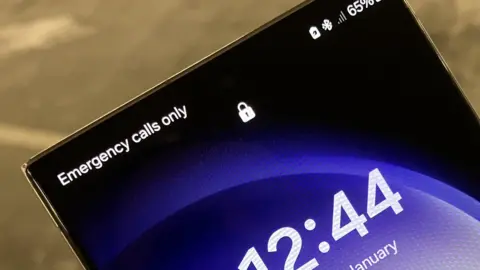 Paul Moseley/BBC
Paul Moseley/BBCMore bin lorries will be used to carry out checks on the quality of mobile phone reception, a council has decided.
Last year, Norfolk County Council arranged for equipment to be installed on refuse collection vehicles to monitor signal strength and download speeds.
Jane James, the Conservative councillor responsible for innovation, said extra trucks would be fitted with the technology, and information gathered would be used to lobby network providers to improve coverage.
Mobile UK, which represents the providers, said they were investing £2bn annually to "significantly enhance network performance".
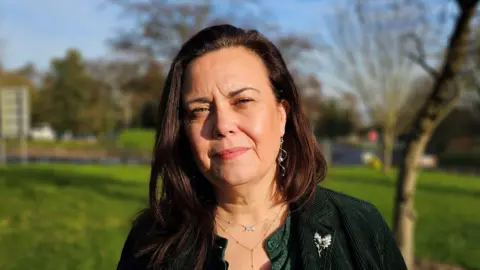 Paul Moseley/BBC
Paul Moseley/BBCMs James said the current connections for data and calls were "not good enough".
"We are a rural area and we need that investment coming in through that private industry to improve service for our residents."
She added that residents could see an interactive map of the information collected by mobile analysts, Streetwave.
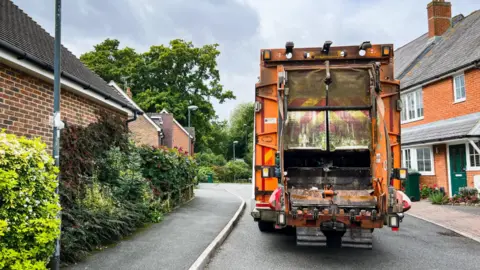 Getty Images
Getty ImagesHorning in the Broads is one village the scheme has identified as a signal blackspot.
Silvi Donges opened a dog grooming parlour there last year and explained that the "awful" signal caused problems.
"It has been quite stressful, I must admit, because we're trying to run a business," she said.
"We're needing to contact customers three or four times a day to pick dogs up – it's been hard work."
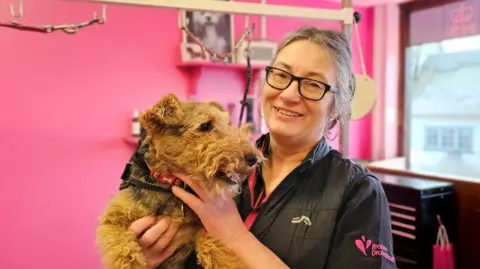 Paul Moseley/BBC
Paul Moseley/BBCJason Masser, 57, said a poor connection – along with slow broadband – had made it difficult to work from home.
"You can get a phone signal at the front of the house, you walk to the back of the house and it's gone – you will completely lose the phone conversation," he said.
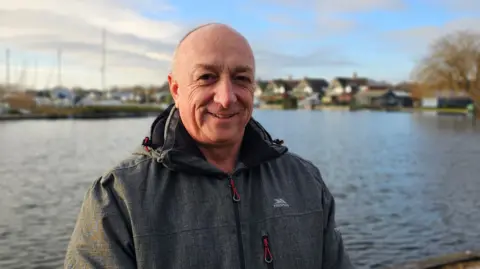 Paul Moseley/BBC
Paul Moseley/BBCOther places found to have low or no signal in Norfolk include Happisburgh, Tunstead and Neatishead.
It comes despite a report by regulator Ofcom that says 99% of properties should receive 4G connections – and "the availability of 5G continues to grow steadily".
Andy Aitken, co-founder of the Honest mobile network, said part of the problem was that while older 3G masts were being turned off, they were not being replaced quickly enough by 5G transmitters.
He said networks were often struggling to get planning permission.
"People don't much like masts being built, because they're not very pretty," he said.
"If we really want to embrace 5G and we really want to use it to drive economic growth, then we need to make it possible for infrastructure players to actually do it."
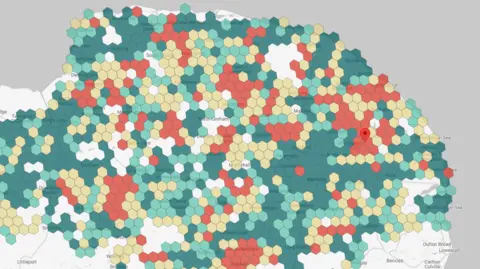 Streetwave
StreetwaveMobile UK, the trade association for the UK's mobile network operators, said its members were "investing £2 billion annually to significantly enhance network performance".
"This crucial upgrade involves the responsible retirement of older 3G networks, paving the way for a more robust and advanced mobile ecosystem," its spokesperson said.
The organisation also called for planning regulations to be "streamlined".
A spokeswoman for the Department for Science, Innovation and Technology said it was "on a mission to deliver higher quality standalone 5G coverage to all populated areas of the UK by 2030".
She added that the government was "committed to removing barriers to the rollout of mobile connectivity, including planning barriers, while ensuring residents are consulted".
Follow Norfolk news on BBC Sounds, Facebook, Instagram and X.
